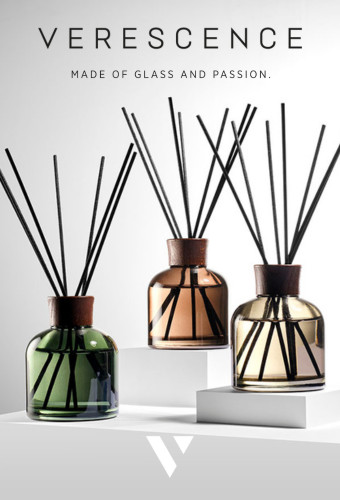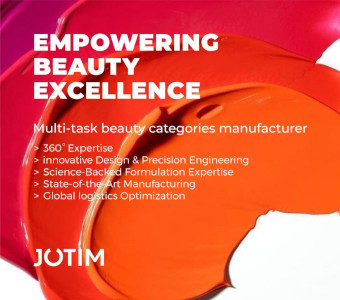Committed to improving the environmental impact of packaging, Marie Devaux, CEO of BRC, aims to bring different solutions to the market.
"We started by working on refills and became specialists in flexible refills for liquids and powders, designed for products that need to be reconstituted. Now, with the Niugreen project, we are tackling the reuse of glass bottles containing alcohol-based products, such as essential oils and perfumes," she explains.
Niugreen is part of a business strategy designed from the outset to help reduce the environmental impact of as wide a range of cosmetic products as possible. For alcohol-based products packaged in glass bottles, the containers need to be washed and odour neutralised before reuse.
An anhydrous technology with high environmental value
"We wanted to find a technology that didn’t use water, for ethical reasons, but also because it’s difficult to remove water from bottles with small necks and because water doesn’t eliminate odours," explains Marie Devaux.
In partnership with the École des Mines d’Albi, in France, the company opted for supercritical CO2 technology: the gas released inside the bottle absorbs the physical particles and odour molecules. This diffusion technology, patented by the company, ensures the internal cleaning of the bottles, at a capacity of around 4,000 bottles per hour.
"The washing process consists of two stages. The bottles are placed in an autoclave and the inside is cleaned using supercritical fluid, which is then vacuumed. Then the outside is washed using another water-free technology, based on cryogenic CO2, a mechanical action similar to sandblasting, but without any effect on the glass. Then there is the packaging, if the customer so wishes," continues the manager.
Another environmentally responsible aspect of the approach is that the CO2 used comes from the methanization of organic waste.
"This means we’re using waste from waste. What’s more, this CO2 passes through the machine in a loop, only 8% of which is degassed, but there are also plans to recapture it in the plant’s green roof," adds the project’s initiator.
Better than recycling
According to an analysis of the life-cycle of a 150 ml glass bottle, these measures together enable a 72% reduction in CO2 compared with recycling, while eliminating the aesthetic issues associated with recycled glass.
The solution should therefore appeal to brands looking to reduce the lifecycle footprint of their products, and compelled by the regulatory requirement for manufacturers to recover 10% of their packaging and reuse it by 2030.
"The brands collect their bottles from the selective distribution networks, which represents a significant volume to be reused, and then send them to the sorting centre where, in partnership with APAJH, workers with disabilities remove the accessories and check the compliancy of the bottles. The whole cycle is therefore very virtuous," explains Marie Devaux.
The Niugreen project, which is currently in the test phase, has a pilot capacity of 400 units per hour. The industrial site will be inaugurated in September 2026 in the Tarn region, France.
|
This story was initially published in our January 2025 Fragrance Innovation special issue, read it in its entirety here. |







































